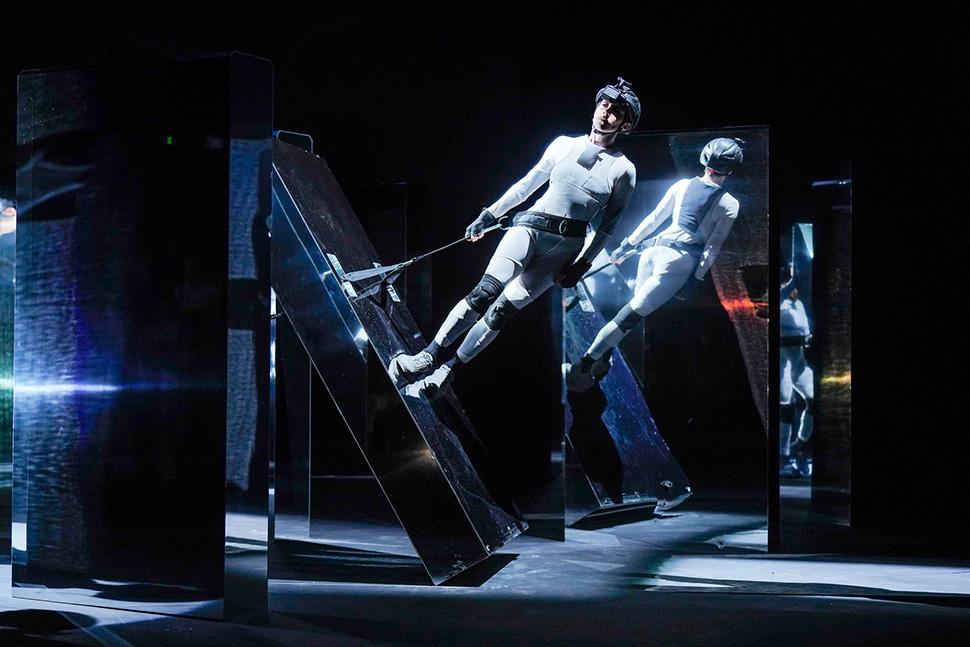| Year/Length: | 2024, 60' approx. (world premiere) |
|---|---|
| Concept and direction: | Melisa Zulberti |
| Composition and live music: | Julián Tenembaum |
| Audio-visual design and live video: | Federico Castro |
| Lighting design: | Pedro Pampín |
| Costume design: | Sofía Romero |
| Sound design: | Federico Lucas, Lafuente Paez |
| Performance: | Fernanda Brewer, Abril Ibaceta Urquiza, María Kuhmichel Apaz, Victoria Maurizi, Gabriela Nahir Azar |
| Visual and graphic communication: | Carlos Martínez, Nicolás Sánchez |
| Artistic production: | Sofia Fernández |
| Head of production and distribution: | Roni Isola |
| Co-production: | La Biennale di Venezia, FIBA - Festival Internacional de Buenos Aires |
| With the support of: | Fundación Williams, Fundación PROA, Fundación Santander Argentina, ArtLab - Creative Platform of Art and Technology cheLA |
| Note: | Winner of the international call Biennale Danza 2023-2024 for a new work |
| Thanks to: | María Teresa Constantin, Adriana Rosenberg, Federico Irazábal, Martín Oliver, Elena Tavelli, Gonzalo Solimano, Esteban Tedesco, Gabriela Karasik, Fabián Wagmister, Santiago Nuñez, Federico Roitberg, Natalia Laube, Lucila Piffer, Valeria Zamparolo, Verónica Bergna, Rodrigo Cadenas, Florencia González de Langarica, Cristian Alarcón, Alberto Negrín, Centro Cultural Borges, Guadalupe Requena, Leo Cifelli, Mercedes Urquiza, Inés Dahn, Elisabetta Riva, Teatro Coliseo, Centro Cultural Kirchner, DIDIPRO, Ezequiel Corbo, Dirección de Asuntos Culturales de la Cancillería Argentina, Secretaría de Cultura de la Nación Argentina, Alejandra Pecoraro, Denise Preguica, Ignacio Durruty, Chiara Alliata |
Melisa Zulberti - Posguerra

Description
Director, choreographer, visual artist, and set designer, Melisa Zulberti is a versatile artist representing a new generation of choreographers supported by the Biennale through a multi-year program of commissions. Born in 1989 in Tandil, Argentina, Melisa Zulberti presents Posguerra, a work focused on the concept of circular time. A circle that perpetually brings us back to the starting point, to our selves as well as our origin, an illusion constructed by society. Time for Melisa Zulberti is an immaterial continuum where the difference between life and its representation is no longer distinguishable.
Posguerra is then "a place without day or night, without past or future. A permanent ephemeral inscribed in the body, a new battlefield that resists the external and the self. This is the meaning of the aftermath. The utopia of a promising after and the ruins of a battle lost by all. A permanent circle that must, at some point, offer another answer to life in society, overcoming a horizon of uncertainty, disorientation, alienation, and frustration".